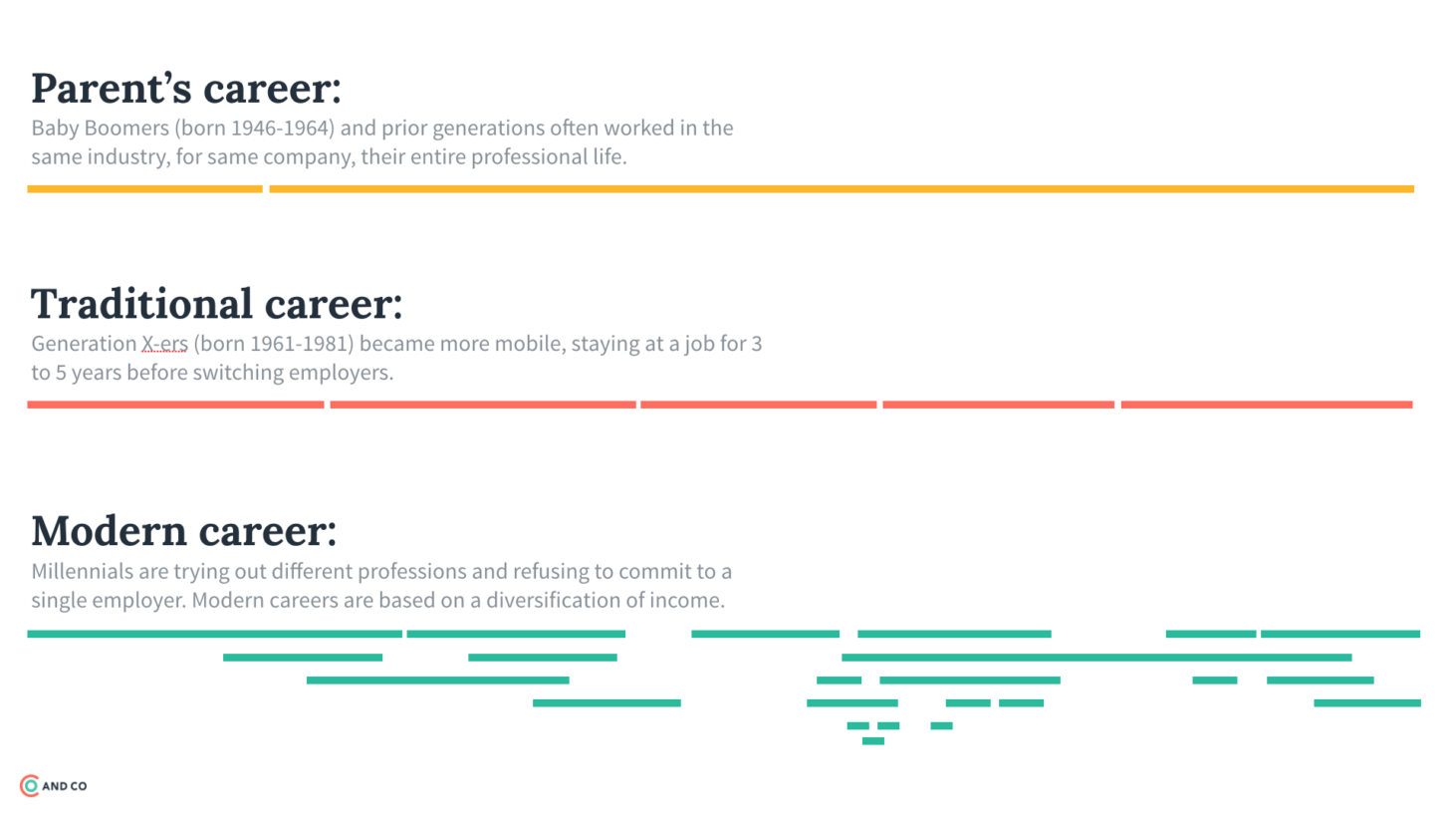- Advice
How to become a digital nomad without slowing down your career
The label “digital nomad” is one that has been met with ire from some members of the professional community. In many ways, digital nomadism is a luxury, but with the right planning and preparation, it’s more in reach than you might think.
Packing your bag to live in exotic locations around the world—while maintaining a healthy pipeline of freelance projects along the way—is the product of advancements that make remote work possible. This is also attributed to a new, general mindset among millennials which favors experiences and travel over material possessions. Wordpress parent company Automattic just shuttered a 15,000 square-foot office in San Francisco for this very reason.
Moreover, the digital nomad lifestyle flips the concept of a traditional career path on its head. In the past, it wasn’t uncommon to stay in a single city or town for most of your life as you worked at a particular job for years, maybe even decades. If a job moved away or a better opportunity arose, the family would pack its bags for a new home that was dictated by the location of the company.

Source: AND CO
Digital nomads navigating a modern career path take a different approach. Instead of building their personal lives around the location of their employers, they are seeking out multiple employers who allow them to live out their personal ambitions from, well, anywhere. Per a recent AND CO study on the future of freelance, 77 percent of digital nomads said their quality of life has improved since they became independent. This over-indexed against all freelancers, 68 percent of which said they are happier since they became independent.
Wanderlusting might seem like a dream for travel-loving independent workers, but in many ways it demands greater diligence and responsibility than a traditional freelance path would. Here are a few ways to keep your career goals on track as you travel the world, as captured in the new book “ANYWHERE,” a 150-page guide written by and for digital nomads.
Build a safety net first
Before packing your bags and booking that one-way flight to Bali, you will need to make sure your freelance business has the financial stability needed to take on the added risks of a nomadic lifestyle. Even if you’re headed to a location where the difference in the cost of living could lead to cost savings for you down the line, you’ll still want to sock away a healthy amount of money to prepare for the unexpected. How much you decide to stash away is up to you, but a conservative place to start is three months worth of living expenses.
You need this financial cushion while living as a digital nomad since it’s not uncommon for world travelers to face unexpected medical bills, electronics snafus, and incremental travel expenses. Beyond having the cash needed to sustain you on your journey, your safety net should also include a healthy pipeline of work and projects to last you for the foreseeable future. This stability might come in the form of a full-time contract role, which you manage remotely, or more likely a series of engagements or retainers.
In these scenarios, it’s critical to have a sound contract in place and signed before you embark. (Need a solid template? Check out The Freelance Contract from Freelancers Union.)
Get your communication skills up
In general, remote workers gain the benefits of increased flexibility and limited distractions. Studies show that remote workers are more productive (and happier, too) for this very reason. That said, there is inherent friction within a geographically-dispersed team. Given all of the tools and channels in the world designed to help coworkers more easily communicate, there is nothing as efficient as an in-person touch base when it comes to quickly resolving an issue or building a stronger connection with a colleague.
As a digital nomad, being an effective communicator is critical to your working relationships. Without regular face-time, you might find it difficult to build meaningful client relationships, which are, of course, fundamental to the long-term stability of your partnerships. On a more granular level, you will need to proactively take the steps needed to stay up to date with what’s going on at the organization beyond the purview of your own role.
The best rule of thumb from the digital nomads who contributed to our book is to always over-communicate when in doubt. Ask for clarity, repeat back next steps and provide project follow-ups that succinctly state the results and proposed improvements. Things like participating in Slack channel conversations and scheduling regular video meetings can also help build more personal connections despite being hundreds, if not thousands, of miles from the rest of the team.
Set clear goals and hold yourself accountable
Digital nomads, like freelancers on-the-whole, are often stigmatized as being freewheeling and aimless in their career pursuits. Modern independent workers know that this is not accurate for the vast lot of the community, but there are always ways to improve the way we manage ourselves as independently-run businesses of one.
Consider all the additional things digital nomads must plan beyond the responsibilities of a freelancer (e.g. invoicing, expense-tracking, contracts and the like), and it’s not hard to imagine a scenario in which a nomad’s career can take a back seat to the excitements and the stressors of a travel-based lifestyle. For this reason, being deliberate with your career aspirations and setting concrete, measurable goals for growth is paramount to your professional development.
Here are some quick tips we gathered in the book:
- Set a North Star: Define your mission statement as an independent worker. What is your niche or headline as an independent worker? Use this to guide the choices you make regarding the projects you decide to take on.
- Establish measurable goals: Building from your mission, define a set of short and long-term goals for your business. Short-term goals can be created on a monthly or quarterly basis, and long-term goals can extend out a year or more. Make sure you are specific in the goal and provide concrete metrics around what success looks like.
- Schedule regular check-ins: Without a formal manager or corporate setting, it is easy to forget to check in on your own progress. Set a monthly or quarterly calendar block for revisiting your goals and auditing your progress. Remember that goals can be optimized over time, but accountability is key. Some digital nomads think it’s effective to set up a personalized rewards system (e.g. “If I hit my goal of three new projects, I’ll book that excursion I’ve been eyeing”) or enlist friends to help hold them accountable.
Being a digital nomad indicates a preference toward living a specific type of lifestyle over chasing a paycheck from a single location. It’s certainly not for everyone, but it’s a movement that is rapidly picking up steam as remote work becomes increasingly commonplace.
If you do choose to take this route, know that your professional development can continue to advance as you travel the world. With the right mindset and tools, your self-managed business will flourish.
Download your free copy of “ANYWHERE” for more tips on how to succeed as a digital nomad.
Katie Perry is editor at AND CO, an app that helps freelancers, solopreneurs and digital nomads manage their operations. For the latest and greatest freelance gigs each week, check out The Gig List by AND CO.
This is a sponsored post by our friends at AND CO, an invoicing app for freelancers. Check out our co-created Freelance Contract here.
With over 300 contributors and 2 million readers, the Freelancers Union Blog is the foremost publication dedicated to empowering the independent workforce. If you'd like to partner with us, please get in touch at partnerships@freelancersunion.org.

